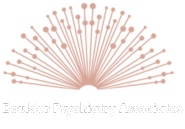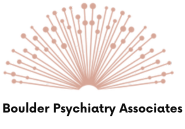One major complaint I hear from people is that they feel “stuck”. In general, feeling “stuck” refers to a psychological state where a person feels unable to change, progress, or escape from their mental or emotional experience. It can reflect a sense of inertia, paralysis, or hopelessness, and is often associated with a lack of control or clarity in how to move forward.
When someone says they feel “stuck,” they are typically describing a sense of being trapped in their thoughts, emotions, or circumstances, unable to move forward or make changes. Of course there are many reasons for this feeling, often linked to several mental health conditions, each with its own characteristics:
1. Depression
In depression, “stuck” often refers to a persistent sense of hopelessness or lack of motivation. People may feel trapped in a cycle of sadness, exhaustion, or numbness, unable to see a way out of their low mood or to engage in activities that once brought them joy. This can be accompanied by difficulty making decisions, feeling paralyzed by doubt, or believing that no matter what they do, things won’t improve.
2. Anxiety Disorders
People with anxiety may feel “stuck” in a loop of worry, fear, or overthinking. This can manifest as an inability to take action due to fears of making mistakes or encountering negative outcomes. In some cases, individuals may feel stuck in avoidance behaviors, where they avoid certain situations or tasks because of overwhelming anxiety.
3. Obsessive-Compulsive Disorder (OCD)
In OCD, being “stuck” might mean feeling trapped in repetitive thoughts (obsessions) or behaviors (compulsions). People with OCD often feel compelled to perform certain actions over and over to relieve anxiety, but this can leave them feeling mentally and emotionally exhausted, unable to break free from the cycle.
4. Post-Traumatic Stress Disorder (PTSD)
For those with PTSD, feeling “stuck” can mean being unable to move past traumatic experiences. They might experience flashbacks, intrusive thoughts, or emotional numbness, feeling trapped in their past trauma, unable to fully engage with the present.
5. Bipolar Disorder
During depressive episodes of bipolar disorder, individuals may feel “stuck” in their low mood and be unable to summon the energy or motivation to take action. Conversely, during manic or hypomanic episodes, they might feel mentally “stuck” in a state of racing thoughts or impulsive actions.
6. Borderline Personality Disorder (BPD)
Those with BPD may describe feeling emotionally “stuck” in patterns of unstable relationships or intense emotions. They might feel trapped in cycles of anger, sadness, or fear of abandonment, making it hard to regulate their emotional responses.
-Harrison Levine




